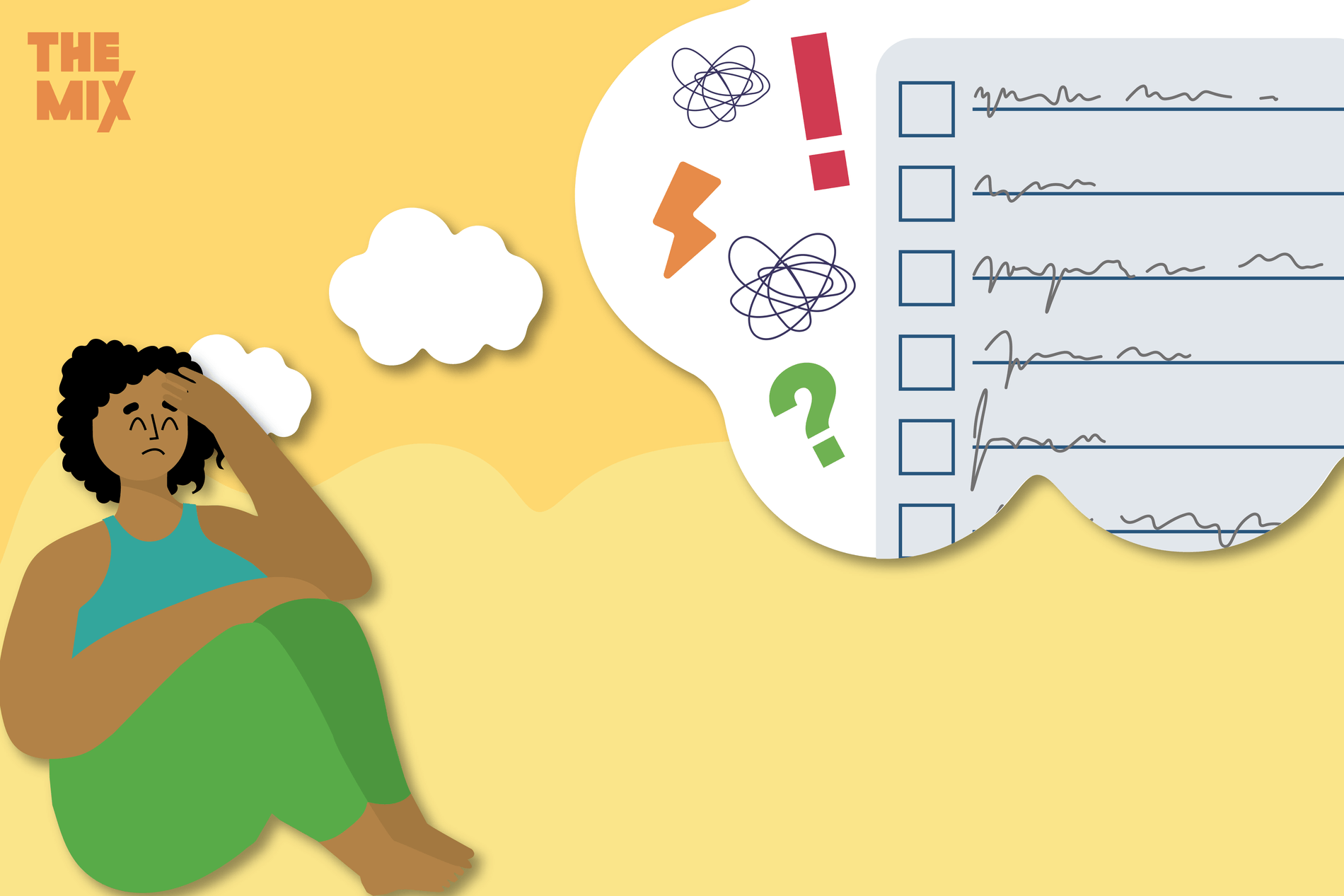What is task paralysis?
Everyone has tasks such as chores and errands they need to fulfil. There are also more pressing matters, like a school project or a deadline at work. However, some people find it difficult to face these responsibilities...no matter how urgent they may be. If you can relate, you may be experiencing task paralysis.

What is task paralysis?
Task paralysis is a psychological inability to begin or complete a task, resulting in feeling overwhelmed and stuck. While you know what you must accomplish, you can’t bring yourself to take the first step. Some get through halfway but are unable to finish. Keep in mind that task paralysis should not be confused with laziness. The former stems from an overwhelming amount of anxiety and mental fatigue, while the latter is caused by an internal unwillingness to work.
Procrastination is often related to task paralysis, but it’s also different. It’s more similar to laziness, as it involves a choice. This phenomenon is more like an involuntary reaction to the activities you have to accomplish. Task paralysis also differs from executive dysfunction, a long-term condition that makes it difficult to plan and manage one’s time. This issue stems more from missing executive function skills like working memory and inhibition control.
What causes task paralysis?
Stress is one of the main contributors to task paralysis, so almost anyone can experience it. However, certain people are more prone to it. For example, perfectionists are more likely to experience this state of mind, especially when they’re unsure of performing a task exemplarily. People with ADHD are also prone to task paralysis. An estimated 2.6 million people in the U.K. have this condition. Its core symptoms involve an inability to begin or concentrate on tasks and difficulty prioritising different duties. Those who have an anxiety disorder are also likely to experience task paralysis. The pressure of starting a project might seem too overwhelming, and you may feel unable to push through.
Breaking Your Task Paralysis
Task paralysis is challenging, as it conditions your mind to feel stuck. Others may even go as far as berating themselves. Hurdles may feel too high to jump over. Fortunately, you can overcome them with the following strategies:
Break down your tasks
Task paralysis makes projects seem overwhelming. Thus, the best way to make everything manageable is to break it down. Try these tips out:
- Create a to-do list: Say you have a presentation to complete. Rather than tackling it as one big task, divide it into smaller stints. Create a bulleted list and add different steps, like researching the facts, organising them into slides, designing the theme of the presentation and so on.
- Work out the order: With your to-do list, think of the order in which you should complete the tasks. Some people base it on urgency, but those with task paralysis can prioritise based on what they feel comfortable doing. For example, if you feel more inclined to start the presentation by doing the design first, place it at the beginning.
- Organise a schedule: Create a schedule for your mini-tasks. You can set up personal deadlines to accomplish or allot a certain number of hours toward a task. Knowing you only have to work on a PowerPoint design for two hours is much easier compared to a seemingly infinite amount of time.
Clear up distractions
If you feel too overstimulated to start or continue a task, try changing up your environment and removing any lingering distractions. Eliminate clutter from the table and block outdoor noise with music. The sooner you achieve an ideal workspace, the faster you can start your project.
Work on mindfulness
It’s natural for the mind to wander off, especially if you’re still stressed about a task. Work on being fully present in the moment to centre your focus on what you have to do. About 16% of British adults learned to practice mindfulness meditation in 2021. You can also try other exercises like journaling or going on a walk to clear your mind and ground yourself.
Get an accountability partner
Feeling anxious about starting or continuing a task is hard, especially when alone. Bring someone you know and trust into the picture. Share the situation and let them reassure you that you’ll get through what you need to do. They can also help keep you accountable for your to-do list and schedule.
Motivate yourself
Positive reinforcement from someone else is heart-warming. You should also learn to give yourself that level of motivation. A pep talk does wonders in minimising the effects of task paralysis. You can also set up rewards for yourself. For example, for every box you check off your to-do list, grab a sweet treat or watch an episode of your favourite show.
Learn to accept imperfection
Perfectionism can make task paralysis seem like an iron wall, as you start to feel like any project is not worth doing if the result is less than excellent. However, flawlessness is too high of a standard to keep up with all your life. Submitting or doing something imperfectly is much better than nothing at all.
Get on top of your tasks
Task paralysis is hard to grapple with. Breaking everything down and increasing awareness is a great first step toward improvement. Once you accept this state of mind, it becomes easier to stay on top of things and accomplish what you set your mind to.
Next Steps
- Chat about this subject on our Discussion Boards.
By
Updated on 14-Jan-2025
Sorry, comments closed
No featured article














